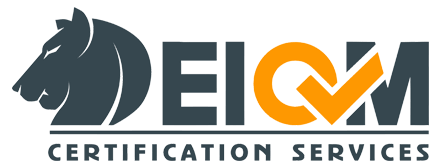ISO 21001 is a standard developed by the International Organization for Standardization (ISO) specifically for educational organizations, including schools, colleges, universities, and training centers. It provides a framework for establishing, implementing, maintaining, and improving an educational management system (EMS).
What is ISO 21001?
Education plays a vital role in shaping individuals and societies. As the demand for quality education increases, organizations around the world are striving to meet higher standards. One such standard is ISO 21001, a management system specifically designed for educational organizations. In this article, we will explore the key aspects of This standard and how it helps educational centers improve their operations and provide a better learning environment.
The primary goal of ISO 21001 is to enhance the educational experience and improve the effectiveness and efficiency of educational organizations. It helps them focus on learner satisfaction, meet learner requirements, and provide a supportive and conducive learning environment.
Benefits of Implementing ISO 21001
Implementing ISO 21001 brings several benefits to educational centers:
- Enhanced Learning Experience: emphasizes the learner’s perspective, ensuring their needs and expectations are met. This leads to an improved learning experience, increased engagement, and better outcomes.
- Improved Efficiency: The standard promotes efficient management practices, streamlining administrative processes, and reducing unnecessary tasks. This allows educational centers to allocate resources more effectively.
- Better Stakeholder Communication: encourages effective communication with stakeholders, including learners, parents, teachers, and the community. Transparent communication builds trust and fosters collaboration.
- Continuous Improvement: promotes a culture of continuous improvement by setting objectives, monitoring performance, and taking corrective actions. This ensures that educational centers constantly strive for excellence.
- International Recognition: Implementing this demonstrates an educational center’s commitment to quality and provides international recognition. It enhances the center’s reputation and attracts learners and partners from around the world.
Key Requirements of ISO 21001
ISO 21001 outlines several key requirements that educational centers must fulfill:
- Leadership and Commitment: Top management must demonstrate leadership, commitment, and responsibility for the effectiveness of the EMS.
- Learner Requirements: Educational centers must identify and address learner requirements, ensuring their needs are met and their expectations are exceeded.
- Competence and Development: Staff members should possess the necessary competencies and be provided with opportunities for professional development.
- Infrastructure and Learning Environment: Educational centers must establish and maintain appropriate infrastructure and a conducive learning environment.
- Support Services: Adequate support services, such as counseling, career guidance, and student welfare, should be available to learners.
- Performance Evaluation: Regular monitoring, measurement, and analysis of performance indicators are essential to identify areas for improvement.
- Continual Improvement: Educational centers must establish processes for continual improvement, based on data-driven decision-making and feedback.
Step-by-Step Guide for ISO 21001 Implementation
Implementing ISO 21001 in an educational center involves several steps:
- Understanding the Standard: Familiarize yourself with the requirements and principles of ISO 21001. Identify how they align with your organization’s goals and objectives.
- Formulate an Implementation Team: Establish a team responsible for implementing ISO 21001. Include members from different departments to ensure a comprehensive approach.
- Conduct a Gap Analysis: Evaluate your current educational management system against the requirements of This standard. Identify areas that need improvement or adjustment.
- Develop an Implementation Plan: Create a detailed plan that outlines the steps, responsibilities, and timelines for implementing ISO 21001. Ensure that all stakeholders are involved and committed to the plan.
- Train Staff Members: Provide training and awareness programs to familiarize staff members with the standard and their roles in implementing it. Training should cover key concepts, processes, and documentation requirements.
- Establish Documentation: Develop and document policies, procedures, and processes in line with ISO 21001. This includes documentation related to learner requirements, support services, infrastructure, and performance evaluation.
- Implement and Monitor: Put the documented processes into practice. Continuously monitor their effectiveness, identify areas for improvement, and take corrective actions as needed.
- Conduct Internal Audits: Regularly perform internal audits to assess compliance with ISO 21001 requirements. This ensures that your educational center is on track and helps identify any non-conformities or opportunities for improvement.
- Seek Certification: Once you are confident in your implementation of ISO 21001, engage an accredited certification body to conduct an external audit. If successful, your educational center will receive ISO 21001 certification.
- Continual Improvement: Maintain a culture of continual improvement by consistently reviewing and refining your educational management system. Solicit feedback from learners, staff, and other stakeholders to drive ongoing enhancements.
Common Challenges and Solutions
Implementing ISO 21001 may come with certain challenges, such as resistance to change, resource constraints, and adapting to new processes. Here are some solutions to overcome these challenges:
- Change Management: Communicate the benefits of ISO 21001 to staff members and involve them in the implementation process. Address concerns and provide training and support to facilitate a smooth transition.
- Resource Allocation: Allocate dedicated resources, both human and financial, to ensure the successful implementation and maintenance of ISO 21001. Consider leveraging technology to streamline processes and maximize efficiency.
- Integration with Existing Systems: Identify synergies between ISO 21001 and your existing systems and processes. Align them to minimize duplication of efforts and maximize effectiveness.
- Engaging Stakeholders: Foster open communication and collaboration with learners, parents, staff, and other stakeholders. Involve them in decision-making and seek their feedback to ensure their needs are met.
Success Stories: How ISO 21001 Transformed Educational Centers
Numerous educational centers worldwide have successfully implemented ISO 21001, reaping the benefits of improved learner satisfaction, operational efficiency, and international recognition. Here are a few success stories:
- XYZ School: By implementing ISO 21001, XYZ School improved learner engagement and academic performance. The school’s focus on individual learner requirements and transparent communication led to higher student enrollment and positive feedback from parents.
- ABC University: ABC University embraced ISO 21001 to enhance its educational programs. The university’s commitment to continuous improvement and stakeholder collaboration resulted in increased research funding, international partnerships, and recognition as a leading educational institution.
Future Outlook: Evolving Trends in Educational Center Management
The field of educational center management continues to evolve, driven by advancements in technology, changing learner expectations, and emerging pedagogical approaches. Here are some trends that may shapethe future of educational center management:
- Personalized Learning: With the help of technology, educational centers are moving towards personalized learning experiences tailored to individual learner needs. Adaptive learning platforms, data analytics, and artificial intelligence enable customized content and progress tracking.
- Blended Learning: The integration of online and offline learning methods is gaining prominence. Blended learning combines traditional classroom instruction with online resources, providing flexibility and interactive learning opportunities.
- Data-Driven Decision Making: Educational centers are leveraging data analytics to gain insights into learner performance, engagement, and preferences. This data-driven approach helps in identifying areas for improvement, optimizing resources, and enhancing learning outcomes.
- Inclusive Education: The focus on inclusivity and diversity in educational centers is growing. Efforts are being made to ensure equal access to education for students with disabilities, diverse cultural backgrounds, and varying learning styles.
- Collaborative Learning Environments: Collaborative learning is gaining momentum as educational centers recognize the importance of peer-to-peer interaction and teamwork. Spaces designed to facilitate group work, discussions, and project-based learning are being incorporated into educational center infrastructure.
- Digital Citizenship and Online Safety: With the increasing use of technology in education, educating learners about responsible digital citizenship and online safety is becoming crucial. Educational centers are emphasizing the importance of ethical behavior, digital literacy, and online security.
Conclusion
ISO 21001 provides a robust framework for educational centers to enhance their operations and deliver a superior learning experience. By implementing ISO 21001, educational centers can prioritize learner satisfaction, improve efficiency, and foster continuous improvement. The standard helps educational centers meet international standards and gain recognition in an increasingly competitive educational landscape. Embracing ISO 21001 is a step towards creating an optimal environment for learners to thrive and reach their full potential.
Contact EIQM
To contact us, please fill out the form below. We will contact you as soon as possible. You can also apply through this form if you would like to receive system certification or representation of EIQM Certification Body.

